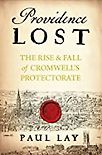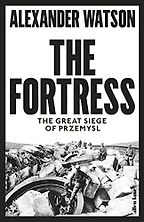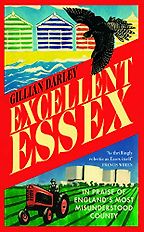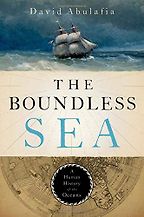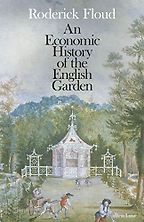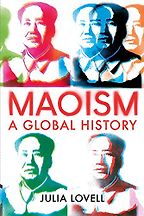How has 2019 been as a year for history books?
Looking back on it, there’s been quite a variety of books, but the strongest ones have been in the traditional fields. History has tended towards the marginal in recent years, trying to address people and places that haven’t been part of the narrative. But the books I’ve found most interesting this year are fairly traditional histories that do their job extraordinarily well and have tended to be on the big themes. There’s one exception to that among the books that I’ve chosen for this year.
What I’ve looked for is books based on real, serious scholarship that would genuinely appeal to that elusive creature, the intelligent general reader. That’s what we’re always looking for at History Today. The five books that I’ve chosen could be read by anyone who is interested in history and not necessarily enjoyed—because in a couple of cases they’re dealing with subjects that are difficult—but all are accessible works and do their job extremely well.
The first book you’ve chosen seems to be a very good example of that, because it’s about World War I. It’s The Fortress by Alexander Watson, and it’s about the siege of Przemysl. Tell me about this book and why you like it.
I’m a person who is pretty averse to military history, on the whole. I find it rather dull and technical and detailed and quite masculine, in a way. At the same time, I’ve become more interested in a certain type of military history that seems to be having a golden moment. It’s about strategy, it’s about tactics, it’s about contingent elements and deals a lot with humanity. I think it was Michael Howard—the great military historian who died just last month—who made the point that many of the most important works of literature in western culture, going all the way back to the Iliad, have been confrontations with war. We think of great novels, like War and Peace, or the plays of Shakespeare. War has been absolutely at the foundation of these because it’s where humanity reveals itself most. And although Alexander Watson’s The Fortress: The Great Siege of Przemysl is plainly written by a historian who understands the technical details of war and the nature of strategic warfare, what’s so fascinating about it is the human story.
I’ve always taken quite a romantic view of the Austro-Hungarian (or Habsburg) Empire and its various permutations. That’s probably coloured by the novels of people like Joseph Roth and Stefan Zweig. This book reveals just how tawdry its end was, full of bitterness, ethnic violence, rivalry, incompetence and decadence.
Przemysl is on the southeast edge of what is now Poland, where it meets the Ukraine. The Habsburg forces were in retreat from a dominant Russian Tsarist army in 1914-1915 and certain elements of the army ended up at a crucial strategic place, this fortress. There is a Hungarian Landsturm regiment there which is competent and professional but also ruthless. But many of the soldiers are middle-aged and not well trained. A lot of people are from the eastern part of the Austro-Hungarian Empire, particularly the Rusyns, an ethnic group that comes from what is now the Ukraine. You see the clashes between the Hungarians and the Austrians, who are the leaders of this empire, and the Rusyns and other ethnic groups who are on the fringes of it.
“What I’ve looked for is books based on real, serious scholarship that would genuinely appeal to that elusive creature, the intelligent general reader”
And what Watson teases out—and I think he does this very, very effectively—is that the terrible horrors that take place in this part of the world during the 1930s and 1940s and the Second World War have their blueprint in this moment of the breakup of this single empire into ethnic groups. It becomes a real horror show, made all the worse by the sheer incompetence of the Austrian chief of the general staff, General Franz Conrad Von Hötzendorf. He is a catastrophe, inhumane and decadent. Decadent is a word I’d use again and again.
Watson absolutely brings this all to life—and death, I suppose. There’s an awful lot of death. The conditions are horrible and insanitary, there’s disease, there’s violence, there’s interethnic fighting. He paints it with the most vivid colours, but it’s an awful scenario and it becomes a portent of what is to come in what Timothy Snyder called the Bloodlands of Eastern Europe.
In the introduction it talks about Przemysl being the longest and most terrible siege of World War I, with Austria-Hungary alone suffering 800,000 losses. So it’s on a massive scale.
It’s absolutely staggering and again it’s pointing towards what’s to come. It’s a complete catastrophe and you see, in this one place, an empire just break down. It’s no longer fit for purpose and it disappears. And they’re fighting the Tsarist army, which is itself going to disappear in a couple of years’ time. It’s a clash of empires that will both soon be gone and replaced by something that’s perhaps even more terrible.
It’s an incredibly well-written and vivid book about a terrible episode in modern European history.
The author, Alexander Watson, won the Wolfson History Prize a few years ago for his book about Austria-Hungary and Germany in World War I, Ring of Steel. Now he’s written about the siege of Przemysl, which sounds like it was incredibly important, but I hadn’t even heard of it. As a historian, he seems to be very good at spotlighting parts of World War I that many of us who were brought up in England don’t know anything about.
That’s absolutely true. Eastern Europe is still a complete mystery to most Britons. With the Brexit debate and everything else that’s been going on for the last three-and-a-half years, what’s apparent is how few Britons have any knowledge of Eastern Europe, Central Europe and indeed Europe as a whole. The historian Roger Moorhouse has talked about how for Britain and France World War II began on September 3rd 1939—but for people in Poland it actually began on September 1st.
We’ve neglected this whole aspect of Eastern Europe, much to our peril, really. Phenomena like the emergence of Viktor Orbán, or the Law and Justice party in Poland, appear a mystery. But many of the people of Central and Eastern Europe went through a whole series of existential crises during the 20th century. There’s the First World War, as detailed in Alexander Watson’s book. The Second World War was even more catastrophic, as revealed in books like Timothy Snyder’s Bloodlands. And then there was the occupation by the Soviet Union and the rebellions in 1956 in Hungary and in 1968 in Czechoslovakia. Then there was the breakdown in 1989.
This is a very, very, very different history from the relatively stable 20th century of somewhere like Britain or the United States. That the phenomenon of Eastern and Central European politics comes as a surprise reveals just how ignorant we are of this area’s history.
Let’s move on to a more relaxing read now on your list of the best history books of 2019. This is Excellent Essex: In Praise of England’s Most Misunderstood County by Gillian Darley. Tell me why this book made your list.
I’ve always been a bit obsessed by Essex. I don’t come from there, I’m from the West Midlands, but I used to cycle through Essex quite a lot. I’ve always been struck by the way it’s divided into two parts. There’s what’s called ‘estuary Essex’, which is places like Romford, Ilford, Tilbury, and Grays. It has this image as a post-industrial, rather bigoted place that’s rather ugly. Then, moving towards East Anglia, there’s the beautiful part of Essex with the Stour Valley and places like that, Constable country.
I used to cycle through Romford and Ilford before getting to Epping Forest. This really beautiful, bucolic county would open up and eventually I’d get to the gorgeous coastline. So it’s quite schizophrenic, but actually that makes it really, really fascinating. The post-industrial, estuary part of Essex is every bit as interesting as the beautiful part.
Essex has this proximity to London—what people call the push and pull of London—but nevertheless has a very distinct identity. It’s always been quite close to the centre of English affairs. Even now, during this Brexit period that we’ve just been through, places such as Thurrock, which is part of estuary Essex, have been really decisive. These maligned, working-class, Brexit-voting regions have really had their moment in the sun over the last few years.
But there’s also a side to Essex that is quite artistic, quite eccentric, a place where you can just escape London, but still be within touch of the capital. For example, the painter Augustus John was involved in a ménage à trois there with his wife Ida Nettleship and another woman called Dorelia McNeill. They fall in love with each other and also with rural Essex, the gypsy encampments. But they could still get back to Liverpool Street, when they felt like it.
Get the weekly Five Books newsletter
It’s a radical county in many ways. It’s a county that’s an early adopter. For example, it’s the region at the heart of Cromwell’s Eastern Association. It was a great supporter, at the first, of Margaret Thatcher. It’s got this very belligerent, up yours attitude, which is typical of a very individualistic county. If you think of the Sun of Kelvin Mackenzie’s heyday, he’s very much an Essex man. It has a lot of entrepreneurs who come from relatively humble backgrounds, like Alan Sugar, Vijay and Bhikhu Patel or Jon Hunt, the man who set up Foxtons.
There’s also this slightly vulgar aspect to it. Rod Stewart was born in Islington, but he moved to Essex where he has his own stately home. These shifts and ironies are typical of Essex, which also produced both Lord Tebbit and Grayson Perry.
You’ve got these wonderful thatch cottages and water mills of Constable country, you’ve got the beautiful salt marshes and mud flats at the estuary. It’s insular, it’s eccentric, but it’s also got the most beautiful collection of churches you can imagine, including one, which is the chapel of St Peter-on-the-Wall, right out on the Essex coast, which is reconstructed from a Roman temple. It’s just the most amazing place. So it’s a very ancient part of England as well.
So Gillian Darley, who is very much a disciple of the great architectural writer Ian Nairn, has done this absolutely beautiful book. Especially around this time of year, it’s a wonderful book to just sit back with and relax and think about how Essex is a place worth exploring and a truly great and important English county.
The book is also a nice reminder that wherever you are, there’s interesting history around for you to find out about.
Absolutely, all places are interesting if you just open your eyes and look. There is nowhere that doesn’t have a fascinating history. This book restores Essex, this much maligned county, and says, ‘Take another look. This is a rich, rich place in terms of history. It’s been at the heart of English culture and remains so today.’
Is the book slightly guidebook-ish?
No, it’s not a book I’d put in the car if I were driving around various country churches, you’d want something by Simon Jenkins for that.
I imagine that someone who knows Essex well would read this book in a different way to someone who doesn’t, but each would find it rewarding in their own way. To the person who did know Essex, it might be a reminder of just how remarkable this county is, but it might also open up certain aspects. For those who don’t know Essex at all, I wholly recommend this book, because they’ll realize just how fascinating a county it is.
Let’s go on to the next of your choices of the best history books of 2019. This is The Boundless Sea: A Human History of the Oceans by David Abulafia. In the introduction he mentions that this book sits alongside his earlier one about the Mediterranean, but in this one he’s writing about the entire globe.
David Abulafia is a remarkable historian and this is, I think, his masterpiece. As you say, he’s already written a history of the Mediterranean, but what seemed a remarkable book at the time was just a little hors d’oeuvre compared to this, the real à la carte stuff. The book has so much breathtaking knowledge and learning contained within it, but is also wonderfully accessible.
The key to it is in the subtitle, it’s “a human history of the oceans.” It’s not a book devoted to maritime technology, although David plainly knows his stuff when it comes to that. It’s about the way in which men and women have engaged with the formidable force that is the ocean.
There’s an element of the book that’s about exploration, but it actually takes him a very long time to get to 1492—not least because he devotes a great deal of space to the extraordinary adventures of the Polynesians. He also looks at the Norse navigators, who used a light-sensitive crystal called a ‘sólarsteinn’ (or sunstone). That allowed them to locate where the sun was, even on a dark day.
The Polynesians were just incredible people who made vast journeys without any proper navigational tools at all. There’s a really great story in the book about a western captain who loses his compass, but his Polynesian crew locate their destination anyway. He asks them how on earth did they knew where the place was and they say, ‘It’s always been there.’ You just want to know how these remarkable people managed to navigate without any of the tools that we take for granted on this vast scale of the Pacific. It’s an extraordinary story, one of the greatest stories in all of human history.
David spends a lot of time on that before getting to what we call ‘the age of discovery.’ But even then, he doesn’t get too obsessed with the expeditions of Prince Henry the Navigator and Columbus and so on. It’s more about trading. The impulse is not to be the first person there, or the first person to discover an island. It’s about the way in which trade opens up the world on this vast scale, and brings humans into contact, often in a benevolent way. In many ways this book an antidote to The Fortress, where we see humans come together in the most appalling, wholly malign way. Trade brings people together and gives them shared aspirations. The sea is this great thing, making up by far the majority of the world’s surface, that brings people together. It’s actually quite an optimistic book and David tells it brilliantly. I wholly recommend this book.
I think at some point he says that the heroes of the book are the traders, which is quite nice, because they don’t normally get their place in the sun, do they?
No, not at all and that’s really quite striking. Trade inspires innovation, it inspires contact, it is a very, very benevolent thing. In a way, this book makes the case that trade is what makes us human in a benign way.
We should probably mention that the book is about a thousand pages long, so it’s quite a commitment.
Yes, it’s not a book to sit down with in one go, but it’s nicely broken up in terms of periods. It’s almost got books within books, and it’s beautifully written. He’s a very good writer and because it’s full of human stories, it has a novelistic aspect to it as well. So it’s very easy to read. It never feels like a difficult book, it’s very, very accessible. One is just taken along on this tide of knowledge and human stories.
In terms of timeframe, where does he start and end?
He starts in Polynesia, and he makes the point that we don’t know when these things happened. In these very early voyages, it’s very elusive but by looking, for example, at linguistic roots, we can see that the connections go very, very deep. For instance, the languages of Hawaii, Tahiti and New Zealand are related and the word for sweet potato resembles linguistically the one people use in South America. It’s difficult to track exactly when this began. We’re going into the deepest parts of human history—which are undateable, essentially—and he brings us right up to the modern age. But the emphasis is always on trade.
Let’s go on to the next of your best of 2019 history books, which is An Economic History of the English Garden.
When we ask historians which area of history they find most difficult, they almost always say economic history. Roderick Floud is an absolutely brilliant historian who makes really quite complex economic history very accessible through something that many people find attractive, the English garden. It’s a phenomenon that begins with the Restoration of Charles II. There were gardens before then—indeed people like Cromwell and his number two, John Lambert, were keen gardeners—but the idea of the great estates opening up is essentially a phenomenon of the late 17th and 18th centuries. Think of St. James’s Park in London, for example. Floud argues that gardens become a catalyst for, and beneficiary of, economic development.
This is the time when England is really emerging as a major global power and it’s got real money. The Whig aristocracy is coming through and gardening is an enormous industry. Floud is very good at working out equivalent prices, and gardening is worth around 11 billion pounds at that time. So it’s massive and one point he makes is that it’s one of the earliest and largest manifestations of something that Britain has become very good at, which is the creative industries. These are works of art, essentially, a cultural phenomenon, and Britain is still very good at that—whether it’s film or theatre or art or music. And it’s built on a huge scale.
Five Books interviews are expensive to produce. If you're enjoying this interview, please support us by donating a small amount.
In the book there is a lot about Capability Brown, because Roderick uncovered his account book, which was held at Drummond’s Bank. We all know Capability Brown was a hugely influential garden designer, but he was just as brilliant a businessman. He had lots of people working for him and many great clients and Roderick Floud works out that in his prime, over the space of about 30 years, he earned not far off a billion pounds in modern terms. Even in his day, he was earning 20 million pounds a year. It’s just absolutely astonishing amounts of money, which gives you some idea of just how important gardening was to England’s economy.
The Germans famously called England ‘das Land ohne Musik’ (the land without music) but they regarded gardening as the English art. There are all kinds of English gardens around the world, think of the English Garden in Munich, because the English mastered gardening on this massive scale in the 18th century.
It’s an extraordinary story and Floud is brilliant at making economic history accessible. He’s helped by the fact that he has this tremendous cast. Capability Brown is at the top, but there’s also this rather louche set of people around the Whig aristocracy and Charles II. It’s a terrific book and it really shocks one, just how important gardening was to England and remains so, actually.
Let’s move on to your last book, which is again on more of a depressing topic. This is Maoism: A Global History.
This is a book by Julia Lovell, who is a brilliant historian of China and has written a number of excellent books. This is not a history of China as such, it’s a look at Maoism as a phenomenon. Maoism has been picked up all kinds of people around the world—by terror groups in South America, by European students and American students in the 1960s. It’s even there in the films of Jean-Luc Godard. It’s had its moment.
But now Maoism is resurgent because it remains the ideological core of the Chinese Communist Party. Although China has abandoned the extreme stuff, like the Cultural Revolution of the 1960s, and embraced capitalism, it’s very much an authoritarian, command kind of capitalism and Mao remains in the background. Or even in the foreground: there’s a huge portrait of Mao that remains, to this day, in Tiananmen Square, at the very heart of China’s enormous power, and his body still lies in state there. It’s not neglected, it’s not seen as some kind of historical by-product in the way Lenin is in Moscow.
Mao remains this great figure and there’s talk of his ‘invisible hand.’ The means to power in China remains Mao’s Communist party, however much it has changed. The judiciary is highly politicized and it’s still a one-party state. China is still viciously authoritarian and we’ve seen—with what’s happening in Hong Kong and with the suppression of the Uyghur people—the full nature of the horrors of modern China.
In this, Xi Jinping has been really important. He invokes Mao a lot and uses catchphrases like the ‘the mass line’ or ‘rectification’—which encourage criticisms of officials from the bottom. These awful words are very Maoist ideas and are about keeping key party members in line. Meanwhile Xi and his Central Committee have increased their power. They got rid of the constitutional restrictions of 1982 that limited the president to two terms as in the United States. And Xi Jinping now, just like Mao, can rule for as long as he wants to.
“It’s an extraordinary story, one of the greatest stories in all of human history.”
I think a lot of people in the West really misread what was happening in China. Julia Lovell plainly was not one of them, because she had intimate knowledge of China. But a lot of commentators got it wrong. They presumed that China was going to become a commercial, capitalist enterprise that would slowly break with its past and westernize (whatever that means).
Nothing like that has happened. Maoism remains absolutely central to this incredible organization, the Chinese Communist Party, which soon will overtake the Communist Party of the Soviet Union in terms of years of holding onto power. And there’s no sign it’s losing its grip. One gets the sense that the West needs the cheap goods that China produces and one does wonder if the Soviet Union missed a trick, that had it produced a lot of cheap tat, it might have survived rather longer.
This book is a wake-up call as to the true nature of China. Weirdly enough, one of the people who does seem to understand China is Donald Trump. He’s wrong on just about everything else, but he may be right—rather like Churchill in the Second World War was wrong about almost everything but got one political question right—about China and how to oppose it.
This is a hugely significant book and a real eye-opener to anyone—and that’s most of us, let’s face it—who has not really grasped the true nature of China in the 21st century.
I like the way she points out that China is always saying it never interferes in the domestic affairs of other countries, but that during the Maoist period China was always interfering in other countries’ affairs.
Yes, and that’s without thinking of China’s more recent moves into Africa. It’s a very, very good book and it’s got real authority to it. Julia Lovell really knows her subject, she knows the language, and she’s not afraid to reveal the Chinese state in its true nature.
Lastly, it’s not on your list, but I wanted to bring it up because it looks absolutely fascinating—you’ve got a book coming out on January 9th in the UK and in April in the US. Can you say a bit about it? I know last time we talked, you said you felt that the 17th century was neglected as a period of history in the popular imagination. Is this your attempt to put that right?
To a certain extent, it is. The mid-17th century has been invoked quite a bit of late, the constitutional aspects of it, because of issues like prorogation in the Brexit debate and the role of the judiciary, the nature of the constituent countries in the UK and the relationship with Europe, as well as our global presence. All these are resonant of the 17th century.
But the reason I wrote the book—which is called Providence Lost: The Rise and Fall of Cromwell’s Protectorate—is because the period has relatively little purchase with the wider public unlike, say, the Tudors or the Victorians or the Normans. That situation is particularly puzzling because there has been so much great scholarship on this period over the last two decades. There are lots of brilliant scholars, but they’re relatively unknown to the wider population. So I wanted to write a book as a window onto this world and the most neglected of all the periods of the 17th century, which is the Protectorate. The book is about the period from the execution of Charles I to the Restoration of his son, Charles II. I wrote it so that people would be tempted to read the really great historians of the period, because it’s a world that has been neglected for too long.
It was a period during which the poet John Milton held a government post: ‘Secretary for Foreign Tongues.’ I didn’t know that.
There are a lot of things people don’t know about this period. You see the nascent British Empire, you see the world’s first written constitution, you see a commoner being offered the Crown. You see Britain and Ireland united for the first time. There are all kinds of things that go on in this period that people don’t know, so I’m hoping the book will at least be a corrective in that way.
One of the comments in the description of the book says it’s not the ‘Puritanical society of royalist myth.’ Is that part of the reason this period is glossed over, because history is written by the royalist winners?
It does have a slightly strange reputation. The people involved in it, the Cromwells, smoked and drank and danced and liked music. They also liked art. As I said earlier, in relation to Roderick Floud’s history of the English garden, they were even keen gardeners. They were aesthetes, but they were a small group of people who were slightly isolated from the wider English public and I think that’s ultimately where they went wrong. The innovations and their attempts to heal and settle the nation ultimately failed because Cromwell’s power rested on the army. It was never transferred to the people and, in the end, the people opted for the ancient constitution and the old ways. But the monarchy could never be the same again and it never was. There was no absolute monarchy again in Britain after Charles I.
Five Books aims to keep its book recommendations and interviews up to date. If you are the interviewee and would like to update your choice of books (or even just what you say about them) please email us at [email protected]

